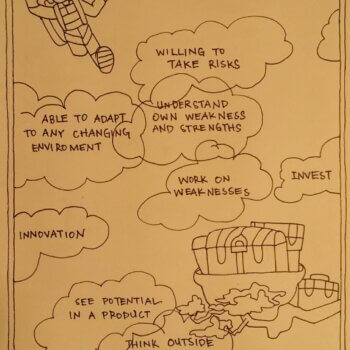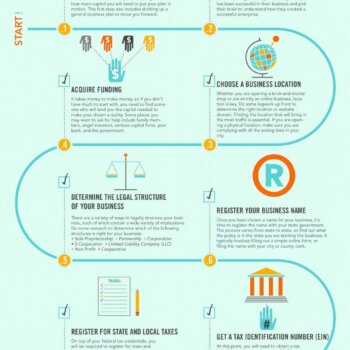Women in business generally belong to one of two leadership groups: female founders or female executives. While equity ownership may vary, these two groups both have decision-making power, scores of employees who rely on them, and have arguably paved the way for the modern woman entrepreneur.
I started my first company while still working full time at a top law firm — also a male-dominated industry. There were times that I encountered clients who only wanted to work with male associates. I had to prove the quality of my work while also not taking the rejection personally. As a result, the qualities of a driven work ethic and tough skin have transferred into my life as a serial entrepreneur.
Luckily, I have had the pleasure of meeting several top female executives along the way, who inspired me and taught me valuable lessons. Here are five tips I learned from these amazing women:
1. Don’t have a complex about being the only female in the room.
Even with the most optimistic outlook, it can be normal to have feelings of self-doubt, especially if others in the company are vocalizing concerns about you. No matter what, you have to believe in your abilities.
Elysa Walk, general manager of Giant Bicycles, enjoys the outdoors and is a recreational rider, but came to the bike industry with a master’s degree in business and no work background in the outdoor sports market. Some people at Giant initially had their doubts, and some even left the company due to her presence. Throughout the time it took for Elysa to “prove herself,” which wasn’t overnight, Elysa believed in herself and refused to acquiesce to the naysayers.
Have faith in yourself and change the tone of your work environment. If it’s hostile, only you can control how you react to the negativity and whether your attitude and performance combats others’ fears.
2. Mentor other women.
There are many tales about the cattiness of high-powered women and how difficult they can be toward one another. A New York Times article from October 2015 explores why women compete with each other. Mentoring other women isn’t just about playing nice or being politically correct — it supports a social revolution and the realization that we really aren’t in competition with each other, but more so with ourselves.
One female executive in the action sports industry told me about a great quote that stuck with her from a BMX X-Games competitor: “Willpower is a muscle.” If we start flexing that willpower each day, whether it’s getting up right when the alarm goes off or clicking “like” on a fellow female business owner’s Instagram post, we can begin the journey of empowering ourselves, supporting others and ultimately bettering female leaders in the process.
3. Be an end user.
Be an end user of your product, especially if the market lacks in your point of view.
Karen Bliss, vice president of marketing for Advanced Sports, was a collegiate and professional bike racer before pivoting. Fuji was her first pro sponsor and she enjoyed competing in races until she decided to “get a real job” at 35 years old. It took her seven years to obtain an executive level position. She still enjoys recreational biking, and her background as a professional racer allows her first-hand knowledge of other female riders’ needs, wants and interests. Without knowing what her customer base wants, needs and experiences, she can’t possibly create and support a product that resonates with her audience. Being an end user helped her stand out and also gain credibility, not only among her peers but as a woman in the outdoor sports world.
4. Practice what you post.
We all have that one friend on social media who posts the most positive, uplifting, motivating texts and images we have ever seen. Yet in person, she is moody, disturbed and generally not a joy to be around. Why the dichotomy? We all have less than great days, but playing Jekyll and Hyde between social media and real life is detrimental to social connections.
One executive in the Las Vegas tech industry told me about how she called out a peer for always posting family and religious content. Yet in person, all she did was complain about how tiresome home life was and how she missed her single days. While there were underlying teachable moments related to workplace, home life and balance, the lack of consistency ultimately ended up affecting her colleague’s credibility among her peers. If you aren’t reliable and consistent with yourself, how can you be so within your job or to anyone else? Practice what you post and you may find that it’s for the better.
5. Make an impact while making an income.
Various companies offer community outreach opportunities, but it’s important for you to find your own path in what it means to give back.
One executive I met in the beauty hardware manufacturing industry used to be a licensed cosmetologist. She gave up cutting hair for clients long ago to focus on climbing the consulting corporate ladder. While she isn’t a licensed cosmetologist any longer, she still likes to go around her Manhattan neighborhood on Sundays and trim hair for the homeless. She finds it rewarding that, when you cut someone’s hair, they just open up and talk to you with less inhibition. Find what fills your soul, while utilizing the skills you have learned to keep you paid.
All the above methods have in common one thing: you. Keep yourself inspired, and you’ll find that you end up inspiring others in the process.





























